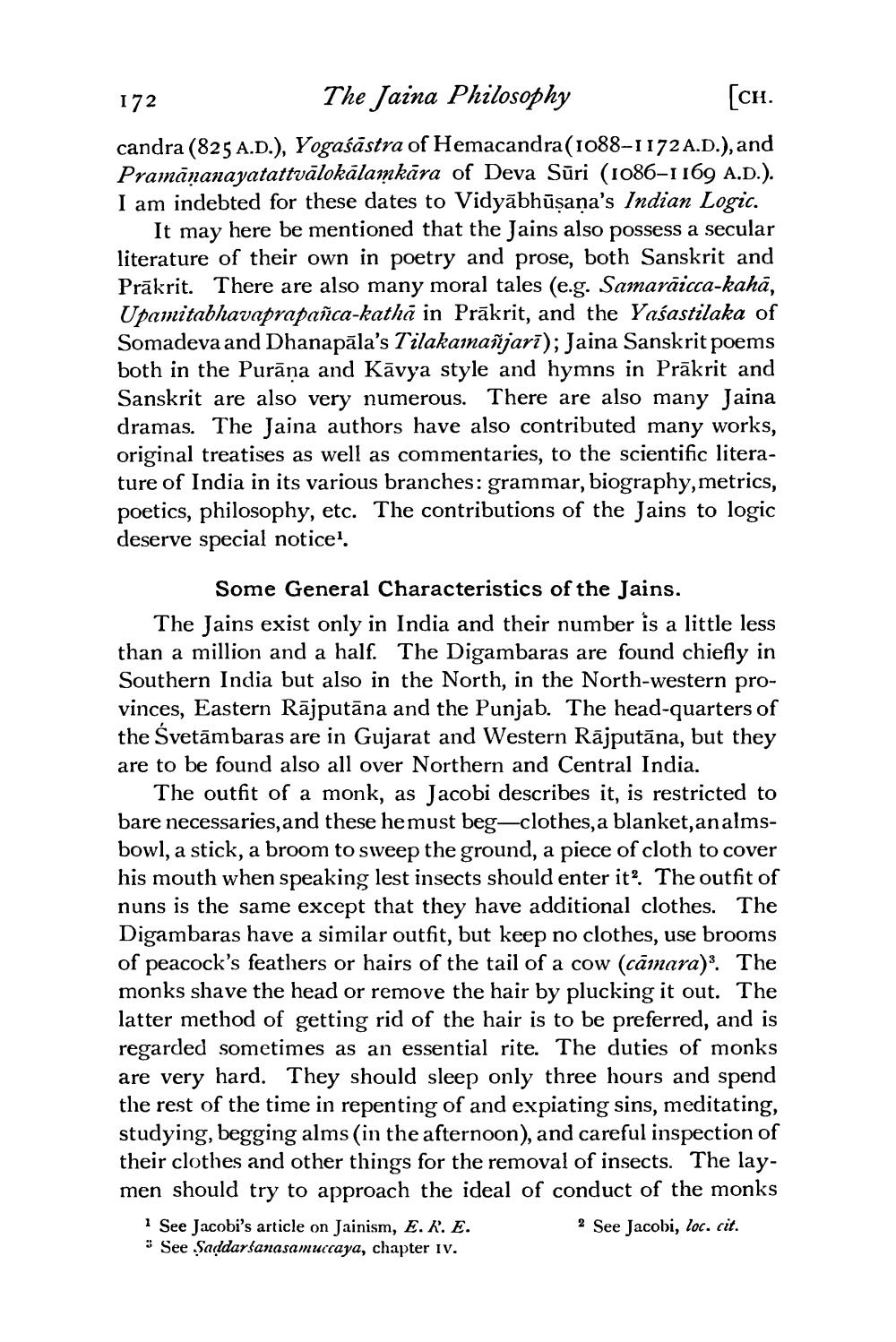________________
172
The Jaina Philosophy
[CH.
candra (825 A.D.), Yogaśāstra of Hemacandra(1088-1172 A.D.), and Pramāṇanayatattvālokālamkāra of Deva Sūri (1086–1169 A.D.). I am indebted for these dates to Vidyābhūsaņa's Indian Logic.
It may here be mentioned that the Jains also possess a secular literature of their own in poetry and prose, both Sanskrit and Prākrit. There are also many moral tales (e.g. Samarāicca-kahā, Upamitabhavaprapanca-katha in Prākrit, and the Yaśastilaka of Somadeva and Dhanapāla's Tilakamañjarī); Jaina Sanskrit poems both in the Purāna and Kāvya style and hymns in Prākrit and Sanskrit are also very numerous. There are also many Jaina dramas. The Jaina authors have also contributed many works, original treatises as well as commentaries, to the scientific literature of India in its various branches: grammar, biography, metrics, poetics, philosophy, etc. The contributions of the Jains to logic deserve special notice!.
Some General Characteristics of the Jains. The Jains exist only in India and their number is a little less than a million and a half. The Digambaras are found chiefly in Southern India but also in the North, in the North-western provinces, Eastern Rājputāna and the Punjab. The head-quarters of the Svetām baras are in Gujarat and Western Rājputāna, but they are to be found also all over Northern and Central India.
The outfit of a monk, as Jacobi describes it, is restricted to bare necessaries, and these he must beg-clothes, a blanket, analmsbowl, a stick, a broom to sweep the ground, a piece of cloth to cover his mouth when speaking lest insects should enter it? The outfit of nuns is the same except that they have additional clothes. The Digambaras have a similar outfit, but keep no clothes, use brooms of peacock's feathers or hairs of the tail of a cow (camara)The monks shave the head or remove the hair by plucking it out. The latter method of getting rid of the hair is to be preferred, and is regarded sometimes as an essential rite. The duties of monks are very hard. They should sleep only three hours and spend the rest of the time in repenting of and expiating sins, meditating, studying, begging alms (in the afternoon), and careful inspection of their clothes and other things for the removal of insects. The laymen should try to approach the ideal of conduct of the monks * See Jacobi's article on Jainism, E.R. E.
2 See Jacobi, loc. cit. • See Saddarsanasamuccaya, chapter iv.




